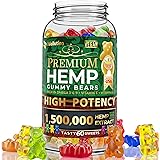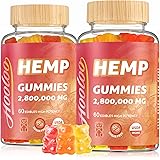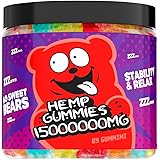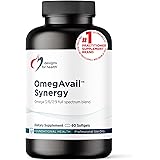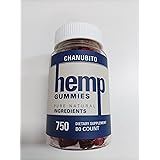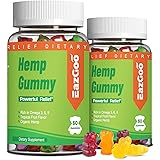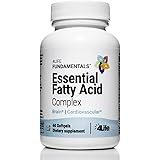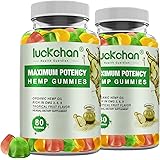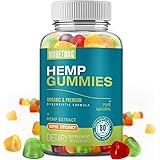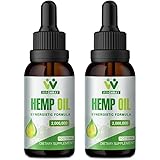A recent industry report indicates that over 70% of consumers are actively seeking natural and organic ingredients in their skincare products, moving away from formulations perceived as synthetic or potentially harmful. This significant shift underscores a growing demand for botanical solutions that prioritize skin health and integrity. The video above succinctly introduces how hemp seed oil for skin stands as a potent natural alternative, delivering profound benefits that often surpass those offered by synthetic counterparts.
Indeed, the efficacy of hemp seed oil in dermatological applications is becoming increasingly recognized. Its rich biochemical profile positions it as a superior option for maintaining a well-balanced and robust dermal ecosystem. This article will delve into the scientific rationale behind these advantages, illustrating why hemp seed oil is not merely a trend but a foundational component for advanced skincare regimens.
Understanding the Skin Barrier: A Foundational Perspective
The skin, as the body’s largest organ, is protected by a sophisticated epidermal barrier, often referred to as the lipid barrier. This intricate structure is primarily composed of ceramides, cholesterol, and fatty acids, which collectively form a protective matrix. Its primary function involves preventing transepidermal water loss (TEWL) while simultaneously guarding against environmental aggressors and microbial invasion.
Compromise to this essential barrier is frequently observed in various dermatological conditions, including eczema, psoriasis, and general dryness or sensitivity. Synthetic skincare ingredients, particularly those containing harsh surfactants or occlusive agents lacking intrinsic skin-identical lipids, can paradoxically impair this barrier over time. This impairment is often manifested as increased TEWL and heightened susceptibility to irritants.
The Biochemical Superiority of Hemp Seed Oil for Skin Barrier Support
Hemp seed oil is distinguished by its remarkably balanced lipid composition, which is critical for bolstering the skin barrier. Notably, it contains an optimal ratio of omega-6 (linoleic acid) to omega-3 (alpha-linolenic acid) fatty acids, typically around 3:1. This particular ratio is considered ideal for human metabolism and dermal integration.
Linoleic acid, an essential fatty acid, is a crucial precursor to ceramides, which are vital components of the intercellular lipid matrix. Adequate levels of linoleic acid are observed to enhance ceramide synthesis, thereby strengthening the skin’s natural protective layer. Furthermore, the presence of gamma-linolenic acid (GLA), a unique omega-6 fatty acid found in hemp seed oil, contributes significantly to its anti-inflammatory properties and ability to modulate cellular proliferation, which is beneficial for skin regeneration.
The Comprehensive Benefits of Hemp Seed Oil: Beyond Basic Hydration
While the video highlights omega 3, 6, and 9 for nourishing and strengthening, the benefits of hemp seed oil for skin extend far beyond surface-level hydration. Its diverse array of compounds works synergistically to address multiple aspects of skin health, establishing it as a multifaceted ingredient in advanced skincare formulations. The inclusion of these essential fatty acids directly supports cellular membrane fluidity and integrity.
Consequently, the skin’s capacity to retain moisture is significantly enhanced, leading to a visibly smoother and more supple complexion. This deep, physiological hydration contrasts sharply with the superficial moisture provided by many synthetic emollients, which often merely create an occlusive layer without addressing underlying barrier deficiencies.
Anti-Inflammatory and Antioxidant Properties
The anti-inflammatory potential of hemp seed oil is largely attributed to its GLA content, as mentioned previously, and the balanced omega profile. Scientific studies have indicated that topical application of oils rich in GLA can effectively mitigate symptoms associated with inflammatory skin conditions. For instance, a notable reduction in redness and irritation has been documented in subjects utilizing such formulations.
Moreover, hemp seed oil for skin is also a source of natural antioxidants, including tocopherols (Vitamin E) and various phytosterols. These compounds are pivotal in neutralizing free radicals, which are unstable molecules generated by environmental stressors such as UV radiation and pollution. Protection against oxidative stress is paramount in preventing premature skin aging and maintaining overall dermal vitality.
Non-Comedogenic and Sebum Regulation
One of the most frequently asked questions regarding plant oils in skincare pertains to their comedogenic rating—their propensity to clog pores. Hemp seed oil is consistently rated as non-comedogenic, making it suitable for a wide range of skin types, including oily and acne-prone skin. Its high linoleic acid content is particularly beneficial for individuals with acne, as acne-prone skin often exhibits a deficiency in this fatty acid, leading to thicker, more occlusive sebum.
By providing ample linoleic acid, hemp seed oil can help normalize sebum production and improve its fluidity, thereby reducing the likelihood of pore blockages and subsequent breakouts. This regulatory effect on sebum glands represents a significant advantage over many synthetic moisturizers, which can sometimes exacerbate congestion.
A Paradigm Shift: Natural Solutions vs. Synthetic Skincare
The argument for natural alternatives to synthetic skincare is compelling, particularly when considering long-term skin health. Synthetic ingredients often prioritize immediate sensory gratification or a specific texture over genuine biological benefit. Many petroleum-derived ingredients, for example, function as occlusives that can provide a temporary feeling of smoothness but do not actively nourish or strengthen the skin barrier from within.
Conversely, botanical oils like hemp seed oil offer a complex matrix of beneficial compounds that work harmoniously with the skin’s natural physiology. This holistic approach ensures that the skin is not just superficially treated but is genuinely supported in its natural regenerative and protective processes. The emphasis is shifted from temporary symptom masking to sustainable dermal wellness.
Potential Drawbacks of Common Synthetic Ingredients
Several synthetic ingredients commonly found in skincare have been subject to scrutiny due to their potential impact on skin health and the environment. Silicones, while creating a silky feel, can sometimes lead to product buildup and may not allow the skin to “breathe” optimally. Parabens, used as preservatives, have raised concerns regarding endocrine disruption, although scientific consensus on their systemic effects from cosmetic use remains debated.
Artificial fragrances and dyes are also frequent culprits for skin irritation and sensitization, particularly in individuals with reactive skin. These issues are largely circumvented when utilizing pure, unadulterated plant oils such as hemp seed oil for skin, which derive their scent and color naturally from their botanical source.
Integrating Hemp Seed Oil into an Expert Skincare Regimen
Incorporating hemp seed oil into an existing skincare routine is a straightforward process, adaptable to various preferences and needs. Its versatility allows for integration across multiple steps of a comprehensive regimen. For instance, it can be utilized as a facial oil following serum application to lock in moisture and provide an additional layer of barrier support.
Alternatively, a few drops can be blended into a daily moisturizer to enhance its nourishing properties without compromising its texture. For targeted treatment, it can be applied directly to areas of dryness, inflammation, or irritation as needed. Due to its non-comedogenic nature, it is generally well-tolerated by most skin types, including those prone to breakouts.
Considerations for Optimal Usage
While generally safe, as with any new skincare ingredient, a patch test is always advisable to ensure individual compatibility. Apply a small amount to an inconspicuous area of skin, such as behind the ear or on the inner forearm, and observe for any adverse reactions over 24-48 hours. Furthermore, selecting cold-pressed, unrefined hemp seed oil is recommended to ensure the preservation of its delicate fatty acids and beneficial compounds.
Storage in a cool, dark place or refrigeration can help prolong its shelf life and maintain its potency. The amber hue and characteristic earthy aroma are indicators of a quality product, suggesting minimal processing and maximal retention of its natural constituents. This thoughtful approach ensures that the full spectrum of benefits offered by hemp seed oil for skin is realized.
The Natural Advantage: Your Hemp Seed Oil Skincare Questions Answered
What is hemp seed oil used for in skincare?
Hemp seed oil is a natural ingredient used in skincare to nourish and strengthen the skin’s protective barrier. It is often chosen as an alternative to synthetic skincare products.
What are the main benefits of using hemp seed oil for my skin?
Hemp seed oil is rich in essential Omega 3, 6, and 9 fatty acids, which help hydrate, smooth, and strengthen the skin. It also offers anti-inflammatory and antioxidant properties to protect the skin.
What is the ‘skin barrier’ and how does hemp seed oil help it?
The skin barrier is your skin’s protective outer layer that prevents water loss and guards against irritants. Hemp seed oil helps strengthen this barrier by providing essential fatty acids that are vital for its healthy function.
Will hemp seed oil clog my pores or cause breakouts?
No, hemp seed oil is consistently rated as non-comedogenic, meaning it’s unlikely to clog pores. It can even help normalize sebum production, which is beneficial for oily and acne-prone skin.
How can I add hemp seed oil to my skincare routine?
You can apply a few drops of hemp seed oil directly to your skin as a facial oil or mix it into your daily moisturizer to boost its nourishing effects. It’s generally well-tolerated by most skin types.


